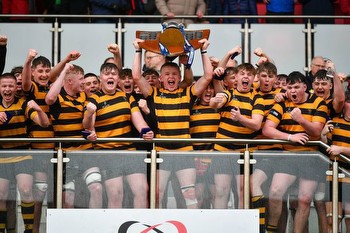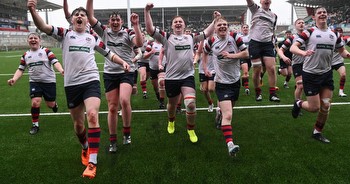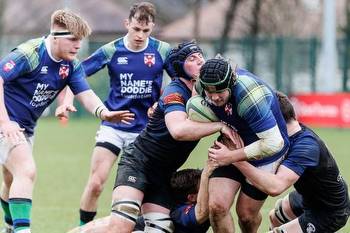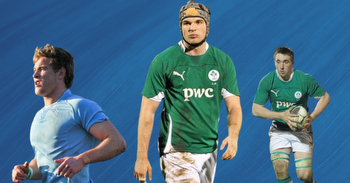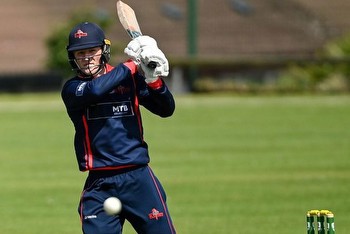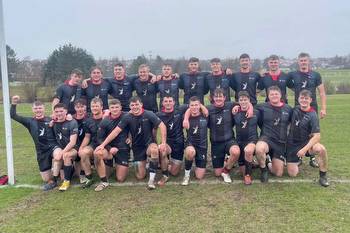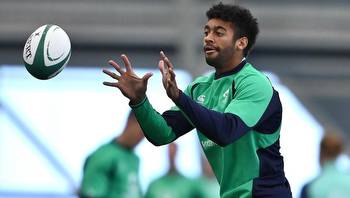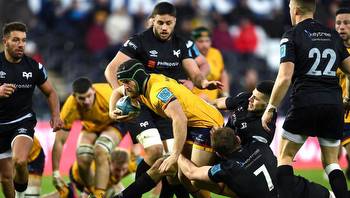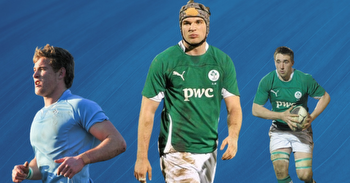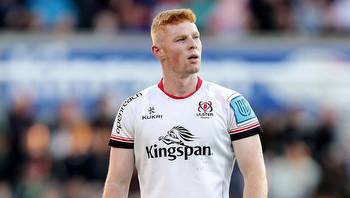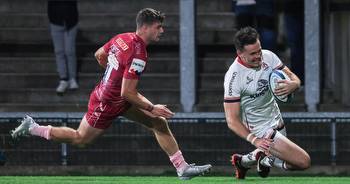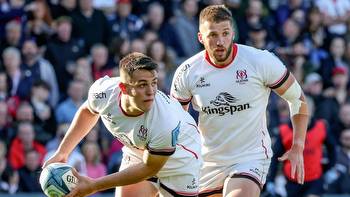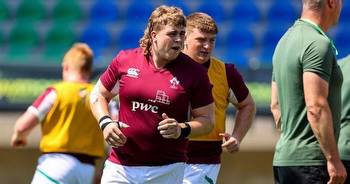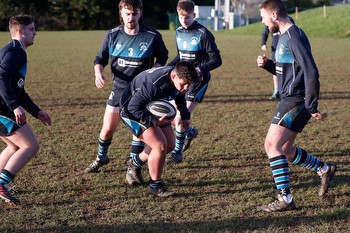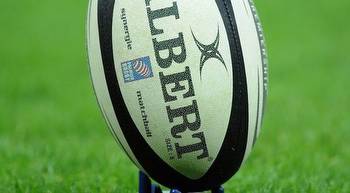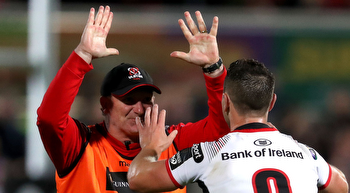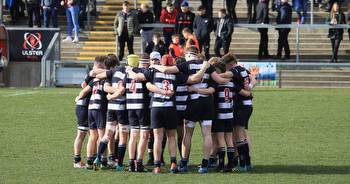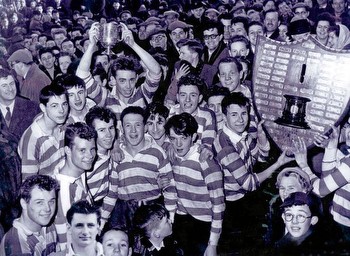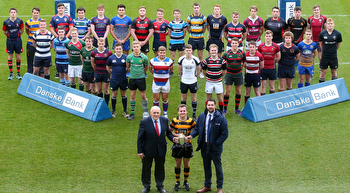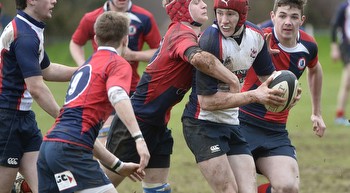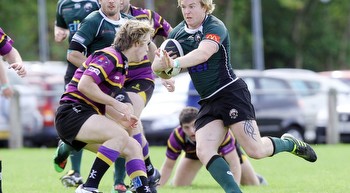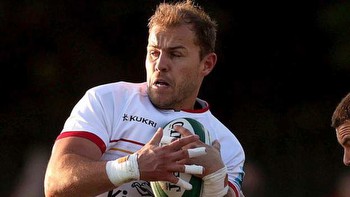How Ballymena became Ulster Rugby's most fruitful catchment area as country schools gained upper hand on city rivals
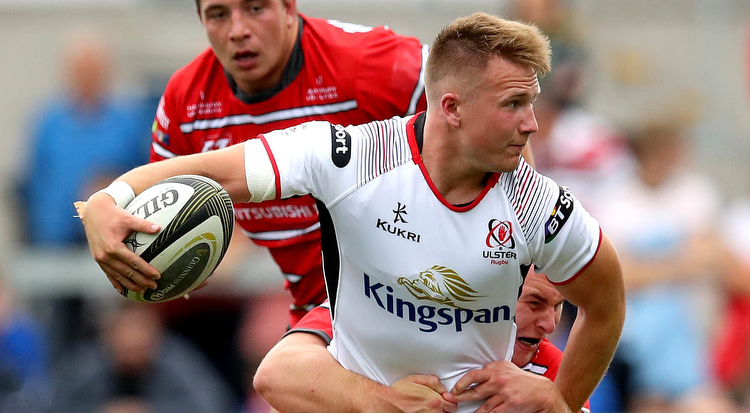
While it is a game now seemingly certain to never take place, the Schools' Cup final of 2020 remains a notable landmark.
From 1995, a year after Regent House beat Wallace High, until this season's curtailed competition at least one Belfast school made the St. Patrick's day showpiece for 25 straight years.
Barring an unlikely twist of fate and quicker than anticipated flattening of the Covid-19 curve, neither Wallace nor the Royal School Armagh will take on the mantle of Ballymena Academy, who instead remain the last 'country' school to lift the cup, having beaten the Belfast Royal Academy side of Ulster skipper Iain Henderson and his former team-mate Stuart Olding a decade ago.
For now the run goes on and it's this historical dominance of the grand old competition by Methody, Inst and Campbell, as well as a few memorable seasons from BRA, that has perpetuated the falsehood that the pathway to Ravenhill extends only as far as Belfast's city limits. Moreso than ever, it's a theory with little basis in fact.
With the first four Academy contracts for next season already confirmed, again it's a quartet that have earned their spots far beyond BT6.
Three from the Wallace team that had been hoping to land a first title will be back at Kingspan Stadium sooner rather than later with stand-out trio Nathan Doak, Ben Carson and Reuben Crothers all coming in next year.
Lisburn is hardly a rugby backwater - Jacob Stockdale is the highest profile of four players on Ulster's books from the school this season - but the fourth new addition, James McCormick, comes from even futher afield as a goal-kicking hooker from Dalriada. A Schools' Cup finalist for the sole time in 1993 when Ulster's European Cup winning number eight Tony McWhirter was at the base of their scrum, recent debutant Stewart Moore began his education there too, yet McCormick's achievement can certainly be considered infrequent.
On the whole, it's part of a wider trend with the latest edition of the Ulster U-19 squad drawing talent from 20 different schools and clubs while the recent history of Academy intakes has certainly been less concentrated too.
Former Ulster and Ireland scrum-half Kieran Campbell became head of the Academy five years ago, joined by club legend Willie Anderson 12 months later, with the fortunes of the 'A' side improving dramatically in recent seasons and the senior side reaping the benefit thanks to the number of senior debutants over the past 18 months.
Their first new crop of youngsters contained eight players, the size of which has not been matched since. Of that group, Adam McBurney has made the most rapid progress, making 24 appearances for the senior side and starting their most recent game against the Cheetahs having begun his rugby life at Randalstown RFC.
Also of that class was back-row Conall Boomer, coming into the system having spent a year in Australia after school.
An Irish under-20 international of the 2016 vintage - the World Cup finalists of James Ryan, Stockdale and Andrew Porter - one wonders what odds you'd have got then that in March 2020 he'd still be most recent recipient of an Academy contract after coming through Methodist College, the Schools' Cup's most successful side.
Near neighbours and fierce rivals RBAI have fared better with four players being brought into the system since then, Mike Lowry, James Hume, Callum Reid and David McCann, the fruits of their three-in-a-row Schools' Cup run between 2015 and 2017, while there have been three from Campbell College over the same period.
All three are trophy-winning schools well coached to great successes and boasting large playing numbers, yet all have been eclipsed of late by Ballymena Academy, leading the way over the past four intakes with five Academy contracts. Indeed it is arguable, given similar numbers in the senior panel, that the Braid at present is Ulster's most fruitful catchment area, even if cynics would suggest Dublin.
Not every talented youngster wishes to be a professional rugby player, and certainly good prospects have been lost to study 'across the water', while it should be remembered too that there is more to schoolboy rugby than who is left celebrating come March 17.
Further still, this picture is set against a backdrop of tireless work by development coaches to cast the net further and wider than ever before, as well as an increased focus on upskilling young coaches whose influence stretches to all four corners of the province.
For essentially his entire career it was considered notable that Tommy Bowe hailed from Monaghan; plenty of valuable work has already taken place to ensure that changes in the years to come. A frequent stick used to beat the organisation in the past, an increased focus on all nine counties can only be commended. Yet should it be considered a worry that the area boasting the greatest density of population appears to be producing relatively few players per head? At best it's an oddity.
While a little over 21 years ago Ulster won a European Cup without an alumnus of 'the Big Three' taking the field in the final, and in a meritocracy geography doesn't come into the equation, an example of why the question matters can be seen in Leinster. Their wealth of success has been built upon the reality that for every Tadhg Furlong and Sean O'Brien the reliable production lines of Blackrock College and St. Michael's are producing players five or sixfold.
Dublin schools alone are generating more PRO14-level players than Leo Cullen could ever use at the RDS yet the reduced pace of production in the Belfast area is already reflected in the senior squad. Of the 21 players in Dan McFarland's panel who spent at least one season of schooling in Ulster, seven, a third, did so in Belfast. Only six years ago that figure was close to half.
Rugby in Ulster has never been more widespread. Is that the sole reason why pro players from Belfast are seemingly increasingly sparse?

